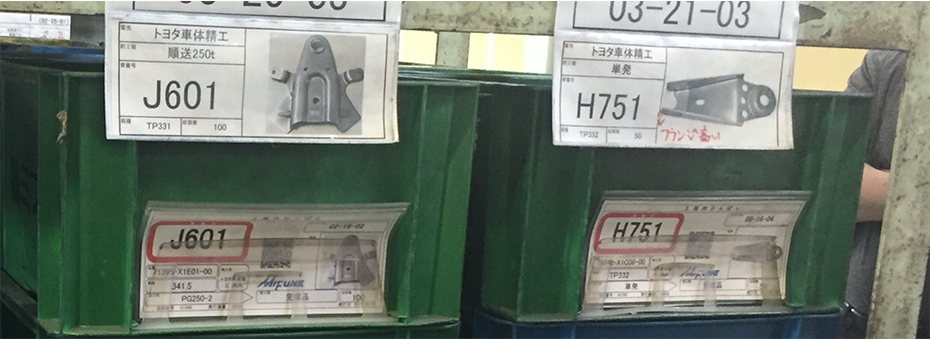Lean started with kanban, and kanban is a trust machine. As I noted recently, kanban is far more than a lean tool: It should be seen as a gateway to lean, and as much of a foundation for improvement as a simple set of cards with information on them. In fact, when pressed to explain the true purpose of kanban (as recounted in Chapter II of The Birth of Lean), Taichi Ohno essentially admitted to Michikazu Tanaka that it was designed to create a positive tension in the workplace that would ultimately motivate people to do their best imaginable work.
There are four elements elements to kanban: a heijunka board reflecting takt time, the kanban cards, a shop stock, and component kanbans.
My colleagues and I at Lean Sensei Partners produce and deliver short instructional videos. Here is our heijunka board:

As we had no way of knowing what the “demand” would be for short videos on lean thinking, we reasoned that the people with the highest number of linkedin “follow” should publish more frequently, and so we should introduce those in the team with less visibility, which we translated into a rhythm of publication – a takt time.
By reading the plan, I know who is doing what, and that on May 6th I will receive a kanban card asking me to deliver a video.
I have this video ready in my shop stock and will send it to our video leader.
This activity signals me to start working on my next video to have it ready for the next pull.
Finally, this creates a materials kanban problem. I need to find the photos necessary to create the video, and I don’t yet have a regular source of procurement on that.
Kanban holds the key to sincere communication and building trust over the long termI say that kanban is a trust machine because, first of all, follwing the instructions captured in the cards means that we all understand what we have to do and why. Our purpose here is to share our ideas on what we believe is important in lean thinking. Equally important, this is an opportunity for self-study (what do I have to say?) and team learning as we discuss each other’s work (what do we collectively think about that?).
Through the clarity of the kanban, we can each discuss the plan, and discuss each individual video. For instance, when I struggled with the rapid pace that our takt time demanded, I shared this with the video leader, who immediately agreed to slow down my takt time (since we don’t know what real customer demand is, there is no big issue). Also when someone struggles with delivering on takt, they tell the leader right away who can help them out. Or, trickier, when I’m not sure about something that someone else is doing, I can have a quick chat with them about it.
It’s also trust machine because this method allows us to break down difficult conversations at the kanban level, which creates the right conditions for sincere communications. We discuss problems one at a time. We make changes one at a time. We learn to work with each other and be more understanding of our quirks. Meantime, production happens. Collectively, we can be proud of what we’ve achieved – and give ourselves a pat on the back.
Kanban holds the key to sincere communication and building trust over the long term.
But what happens if someone steps out of this conversation? Sometimes you don’t notice (although with kanban it’s visible enough), but responses get slower, conversations get more difficult, kanbans are skipped, changes are done grudgingly.
People change. Every one of us is under a lot of pressure from daily life and the egos of every individual, and sometimes alignments shift. At times this is not even a matter that people don’t see their interest in working with you, but simply that the pressures of life have moved them elsewhere. Then they start doing weird stuff.
The hardest challenge is when others behave in a way they know is wrong but feel they can’t do anything else. The justification engine gets going and generates the onlly obvious source of blame…their partners. Not fair enough. Not enough respect. Not enough help. Not enough consideration. We’ve all been through it.
Kanban cards don’t lie. When the kanban card doesn’t come back there are only two options:
- The delivery team is struggling, and willing to discuss it and work with you to fix the problems and get back on track
- The delivery team avoids communication and is busy doing something else
In case number two, the hardest decisions to make is: let them go and move on.
Precisely because lean can only function with trust, we invest massively in relationships. The main lean principle is relationship first: first fix the relationship, then fix the problem. And in 99% of cases it works spectacularly. But this also means accepting the case where the relationship is unfixable because the other guy has already made different choices which they simply have not told you yet.
When the kanban cards don’t come back, there is either a fixable problem, or they are being held for ransom. Accept it and don’t try to fix what can’t be fixed.






